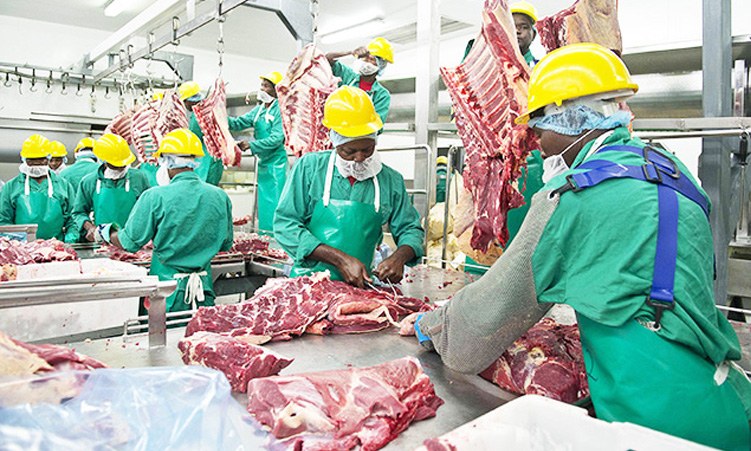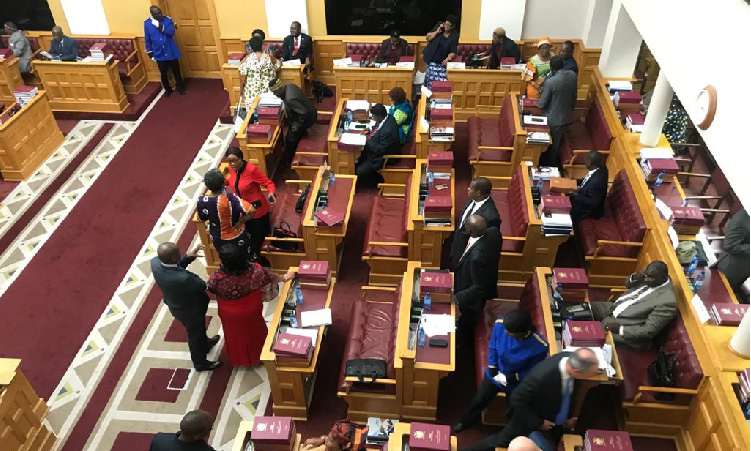THE European Parliament has sided with Namibia and other countries in the Southern African Development Community (SADC) who have reservations about the controversial Economic Partnership Agreement (EPA).
Although the deal will grant the region access to the billion-dollar markets of the European Union, it is also feared that it will undermine regional integration and threaten local industries.The 785-member parliament has urged the European Commission (EC) ‘not to put undue pressure on SADC countries to accept liberalisation and regulatory obligations’ even though the economic powerhouse is pushing to have the agreement signed and sealed by the end of the year.It has also called on the EC to be more ‘flexible’ in its negotiations with SADC and the African-Caribbean-Pacific (ACP) countries.This will be high on the agenda at the 17th session of the ACP-EU Joint Parliamentary Assembly when they tackle the EPA progress tomorrow afternoon in Prague in the Czech Republic.’Progress in concluding EU-ACP economic partnership negotiations now depends on the willingness of the Commission to offer concessions to ACP governments and negotiators,’ stressed Glenys Kinnock, Co-President of the ACP-EU Joint Parliamentary Assembly, in a press statement yesterday, noting Trade Commissioner Catherine Ashton’s commitment to a ‘new flexibility’.Commissioner Ashton recently wrote Trade and Industry Minister Hage Geingob a letter asking him to find a way forward so that the interim EPA could be signed in ‘the very near future’. Because of various concerns, Namibia only provisionally initialled the interim EPA in 2007, ensuring the country retained its EU market for beef, fish and table grapes.A high-level meeting between EU and SADC negotiators at Swakopmund recently addressed key worries of especially Namibia, Angola and South Africa (ANSA), but several thorny issues remain, most notably the clauses on Most Favoured Nation (MFN) status and the definition of parties. These factors might threaten South-South trade, as well as the Southern African Customs Union (Sacu), one of the main revenue generators for the Namibian Government. In a resolution taken in March, the European Parliament stressed the importance of intra-regional trade and the need for increased regional trade links and called on the EC ‘not to undermine the regional dimension’. The parliament furthermore underlined the importance of ‘preventing the break-up of Sacu’.The resolution also calls for the EC to ‘demonstrate flexibility in addressing Angola, Namibia and South Africa’s key substantive concerns on issues such as the MFN clause, as well as export taxes and infant industry protection’.ANSA apparently resolved their differences with the EU on export taxes and infant industry protection at the Swakopmund meeting, but failed to reach agreement on the MFN clause. This requires that a World Trade Organisation (WTO) member country must treat all its fellow WTO trading partners the same. Therefore no African-Caribbean-Pacific (ACP) country could offer a major trading partner, whose trade exceeds more than one per cent of world trade, any better benefits without automatically also offering it to the EU.The European Parliament has urged the EC to seek a regional EPA which will be satisfactory to all parties, ‘without setting unrealistic deadlines and allowing SADC countries to renegotiate any provisions on contentious issues that they wish to amend or have withdrawn’.According to the European Parliament, the EC has agreed to address these differences before the interim EPA is signed.The sensitive subject of EU agricultural subsidies also received attention in the resolution.The European Parliament acknowledges that EU export subsidies ‘often represent a serious obstacle for ACP producers in the agricultural, livestock and dairy sectors, disrupting and often destroying both local and regional markets’. The EU should therefore phase out all kinds of export subsidies ‘without delay’, the resolution states.It continues that the current interim EPA makes no provision for each country’s food security and does not protect sustainable family agriculture. These topics must be ‘placed at the centre of the negotiations’, according to the European Parliament.The resolution also emphasises that any EU aid should be additional and without any strings attached.'(The resolution) opposes any kind of conditionality linked to the EPAs in the matter of granting European aid and calls on the Commission to guarantee that access to the funds of the 10th European Development Fund is kept separate from the results and pace of the negotiations,’ the document reads.jo-mare@namibian.com.na
Stay informed with The Namibian – your source for credible journalism. Get in-depth reporting and opinions for
only N$85 a month. Invest in journalism, invest in democracy –
Subscribe Now!









